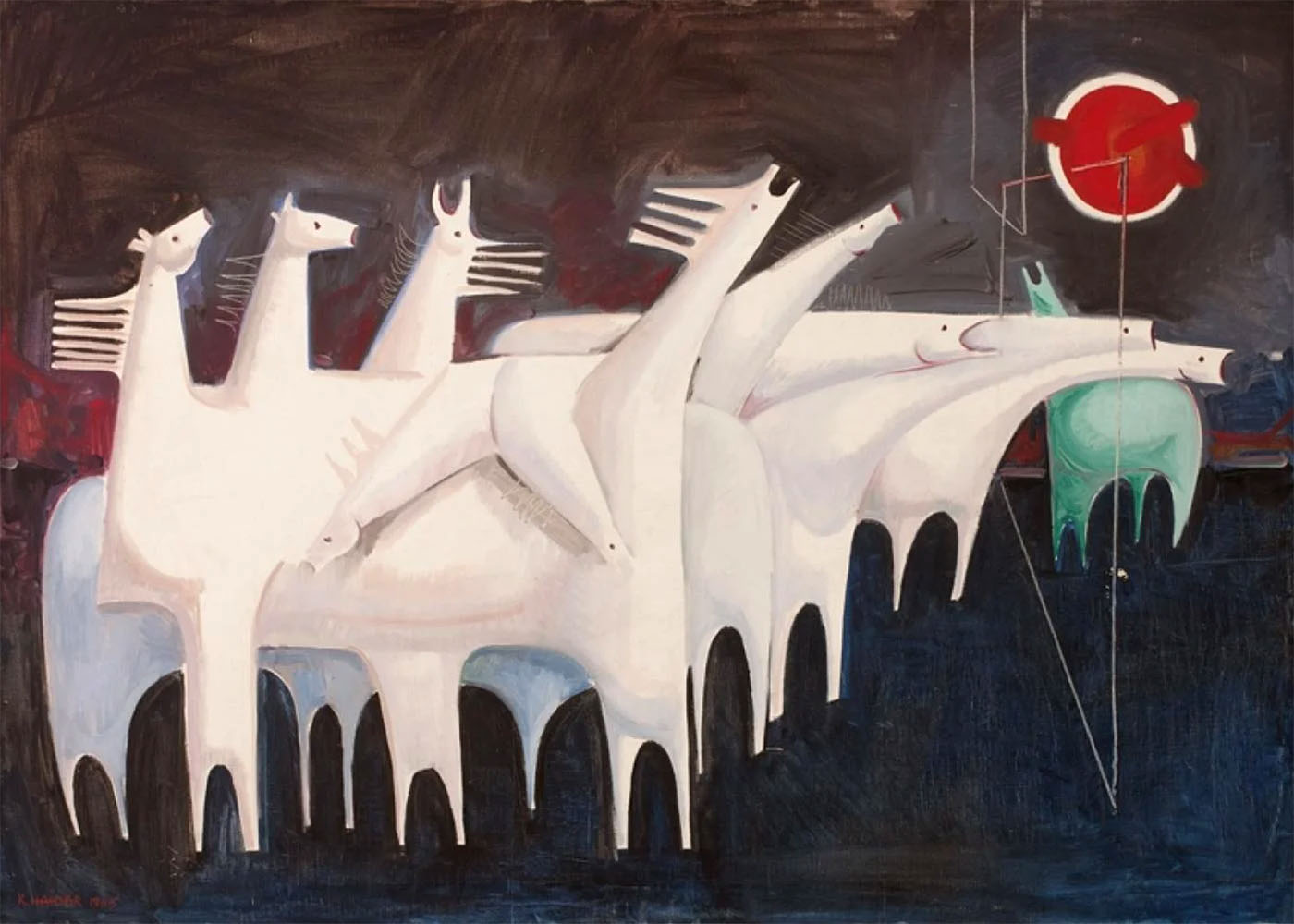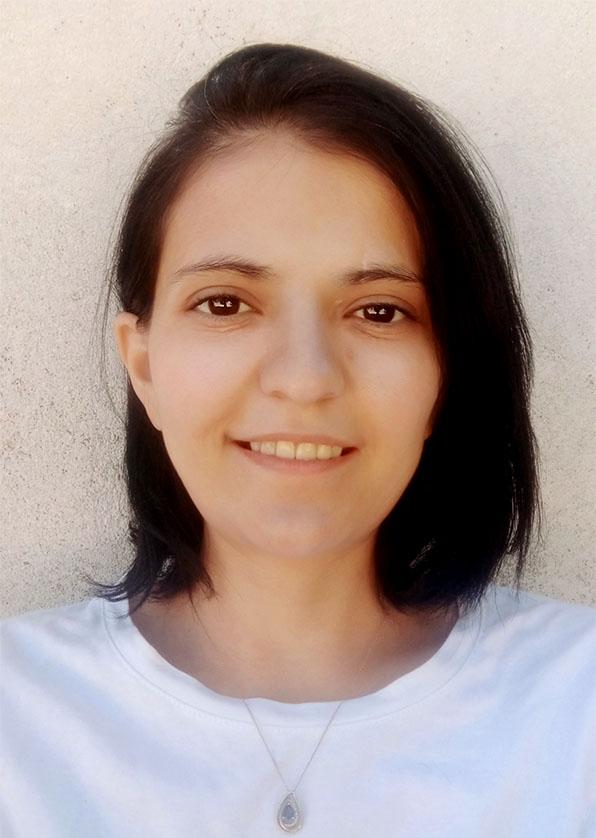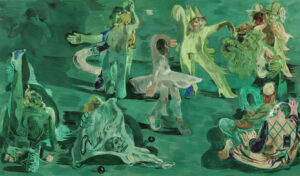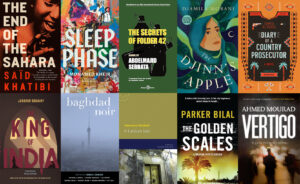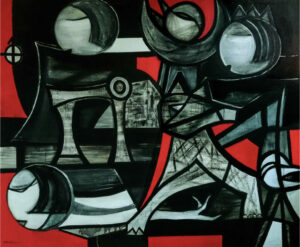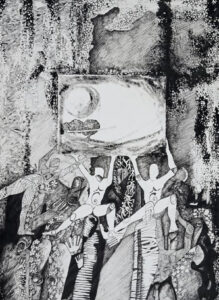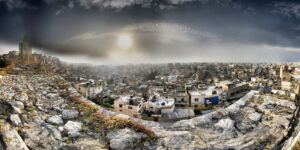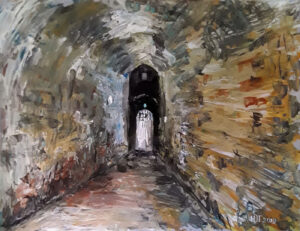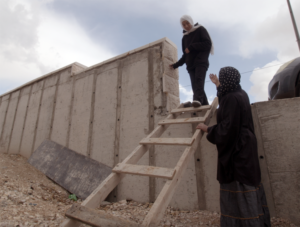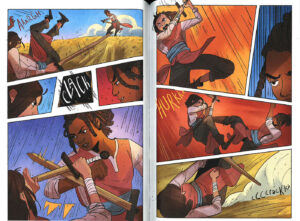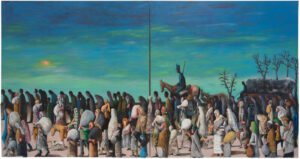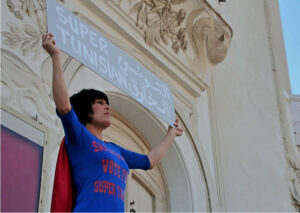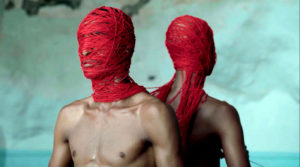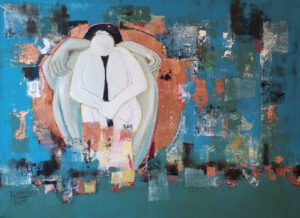Animals in Our Days, short stories by Mohamed Makhzangi
Translated from the Arabic by Chip Rossetti
Syracuse University Press 2022
ISBN: 9780815611486
Saliha Haddad
In the stories collected in Animals in Our Days, animals and their suffering, particularly endured because of or at the hands of humans, serve as a commentary on politics. Whether directly or indirectly, this is never more the case as when they are entangled in human wars and conflicts. In “Enchanted Rabbits,” for instance, rabbits are at the mercy of people despite their initial liberation in the fury of protests, as they are captured by protesters and poor families, who want to consume them, and abused by soldiers tasked with keeping order, who want to use them as evidence against the protesters.
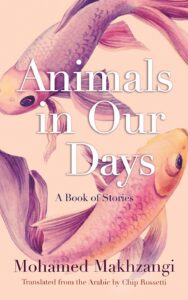
In the 1980s, witnessing the effects of the Chernobyl nuclear catastrophe from up close while living in Kiev, Ukraine, Makhzangi transitioned from practicing medicine to writing. Chernobyl not only pushed him to change career paths but also informed his future writings, starting with his remarkable and painful memoir, Memories of a Meltdown, published in 2006, in which he collected the memories of the people who lived through the catastrophe ten years after its occurrence.
Makhzangi, born in Egypt in 1950, has produced many short stories and scientific articles where both his literary skills and scientific knowledge blend together. Animals in Our Days is no different. The collection’s short narratives were written in different forms, varying from travelogues and memoir to journalistic reporting and fever dreams. He writes sparingly, carefully choosing words that explore the themes of political machinations and human abuse of animals through war, conflict and torture. Take, for instance, this passage from “The Sadness of Horses,” an account of the physical as well as psychological impact of the Israeli occupation of Egypt’s Tiran Island between 1967 and 1982 — on its people and animals, especially horses:
The horses are like beautiful maidens whose beauty only increases when they are cared for and pampered, and whose unattractiveness grows with rough and cruel treatment. The horses are adept at cutting narrow paths between the mines, just as they are skilled at prancing between notes and quarter notes.
Whether in his short stories or non-fiction writing, Makhzangi does not hesitate to level criticism at political manipulations and failures in Egypt as well as other nations. In Memoirs of a Meltdown, for example, he skillfully contrasts the beauty of the spring season with the horrors of the nuclear accident, laying bare the political suppression of its danger and the concealing of state incompetence, especially from the immediate inhabitants of the area. And in one of his most recent articles for The Scientific American in its Arabic version, “Dirty Bombs…an Imagination that Exposes Reality and Probability” (translation mine), he criticizes claims used by states to play on their people’s fears, exploiting fear as an excuse to wage war against other states, whether in the past, as with World War I, or in the present, as with the ongoing Russian-Ukrainian war.
Likewise, in Animals in Our Days, filled with his own real-life experiences and keen observations of the animal world, Makhzangi criticizes political games, decisions and actions by putting at the center of the stories’ different animals, which serve as stand-ins for, comparisons with, and parallels to people, particularly people trapped in the often dangerous theatre of politics.
In the first story, “Deer, Foal, and Puppies,” this entrapment of animals and their inability to counter the political powers cornering them is already evident. The animals found in the palace of an authoritarian regime after the marines of an invading army occupy it are either killed or caged — a fate similar to powerless people unable to escape either authoritarianism or the horrors of war. In “Enchanted Rabbits,” one of the most fantastic stories in the collection, the writer contrasts the poetic mystery of “bright, dazzlingly white, rabbits,” which keep on appearing and disappearing, with the violent protests in Egypt; the animals’ story evokes the protesters and the events themselves. The rabbits, caged as possessions of the governor and in a state of submissiveness, are liberated during the protests and run away like the people who were oppressed under the governing body and finally revolted to free themselves from it. This comparison is reinforced by the writer’s contrasting of the beauty of the narrator’s moments with the rabbits and the brutal apparition of soldiers:
The glimpse of her smile and the softness of the delicate, warm, white fur in my arms was one of the most magical moments of my youth. From the corner of my eye, I could see the soldiers hurrying over, their hands outstretched to take the rabbit from me.
Makhzangi’s political commentary does not stop at direct or subtle statements on the more obvious power abuses such as authoritarianism and war, but extends to the political power systems that affect marginalized people. In the story “White Bears/Black Bears,” where a woman feels a connection with bears caught for touristic shows in Rajasthan in India, the writer accounts for the suffering of women by paralleling it with that of the desperate animals, as society systemically uses women to trap the bears, and uses the bears to trap tourists’ interest — and by extension their money.
Though Makhzangi tends to focus on the present, he also goes back in time with what he describes as his “political wanderings” in the story “Little Purple Fish,” to reflect on colonialism and imperialism. Here the narrator tries to see the fish while on a trip to China and to places of historical significance with regard to his political beliefs; the little purple fish’s exceptional memory subtly brings to mind the importance of never forgetting the past.
“Mules” is a story that shows animal suffering: vulnerable but resilient, mules are used for trafficking between the borders of two countries in conflict. However, their situation veers to something worse than exploitation, as they must contend with the threat of death at the hands of border police. The stories “The Sadness of Horses” and “On an Elephant’s Back” are also narratives about such exploitation, in which animals are harmed physically as well as mentally. “She-Asses” also explores the suffering of animals because of war and conflict; the account takes the narrator into a surreal journey back in time and space, to the great fire of Rome during Nero’s reign.
Human disregard for animals, and at times their direct brutality, is at the heart of some of these stories: in “Brass Grasshoppers,” grasshoppers are put in boxes and sold; in “Pursuing a Butterfly in the Sea,” the narrator pursues a butterfly fish in the sea to catch it; technology comes to disrupt the lives of animals in “Water Buffalo”; and discovery trips through Namibia in “The Elephants Go to Drink” subjects animals to exoticization in their wild natural habitats.
This magnificent English translation from the Arabic by Chip Rossetti delivers both the thematic nuances and the poeticism of Mohamed Makhzangi. Animals in Our Days thus asserts its place as a unique critical and artistic work that puts animals at its center, and belongs in a canon that includes George Orwell’s Animal Farm and Romain Gary’s The Roots of Heaven.



